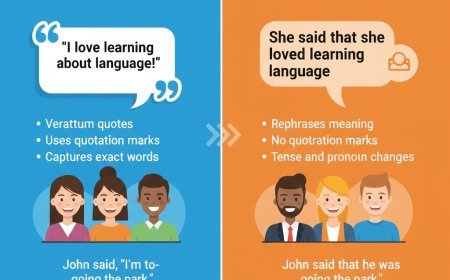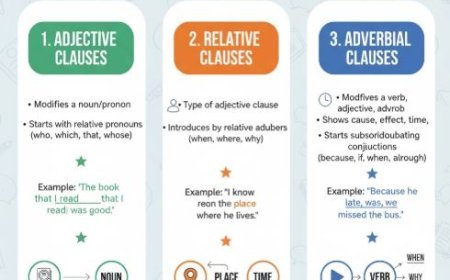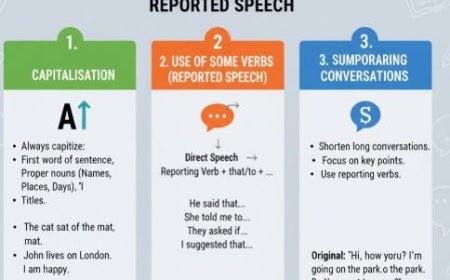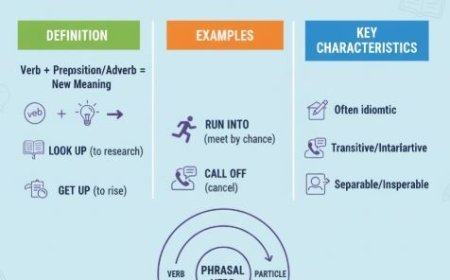AUXILIARY VERBS IN ENGLISH
Auxiliary verbs in English are helper verbs that team up with main verbs to show tense, mood, or form questions (be, have, do, will, would, etc.).
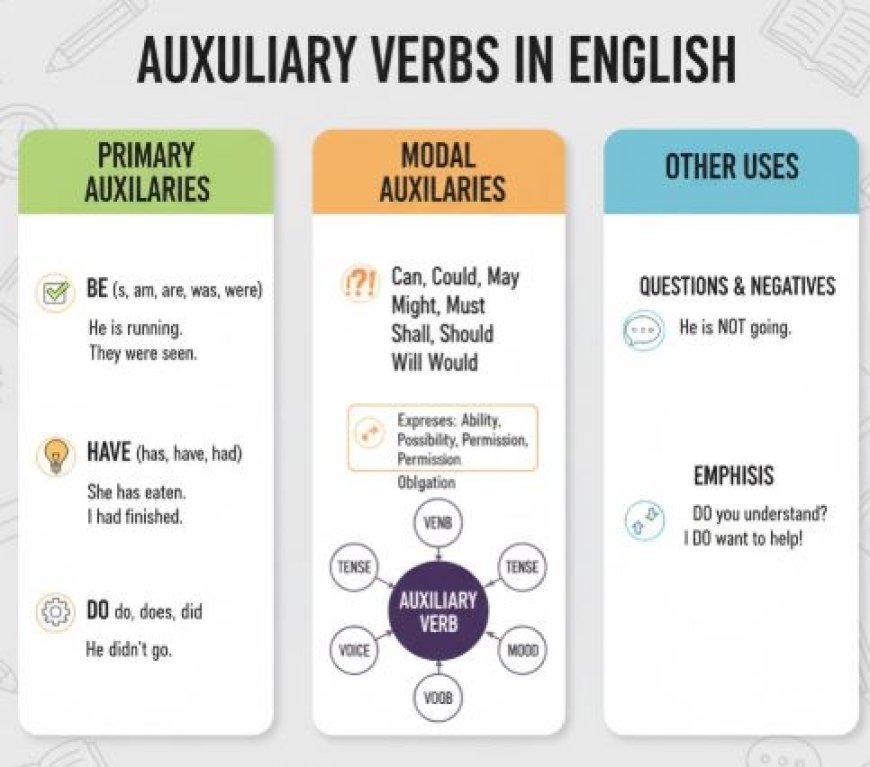
Auxiliary Verbs in English
Verbs are the action stars of sentences, telling us what's happening. But sometimes, they need a little help to express themselves fully. That's where auxiliary verbs, also known as helping verbs, come in! They're like grammar sidekicks, supporting the main verb and adding extra meaning.
Main verbs: These are the superheroes themselves, like "run," "jump," or "eat." They tell us the main action.
Auxiliary verbs: These are the helpful gadgets or sidekicks, like "has," "is," or "will." They help the main verb express things like tense (when the action happens) or mood (the speaker's feeling about the action).
A few examples of auxiliary verbs in use are shown below.:
1. Tense
- She has already finished her homework. ("Has" helps express the present perfect tense, indicating an action completed in the past.)
- They will travel to Europe next summer. ("Will" helps express the future tense, indicating an action that will happen.)
2. Mood
- Can you help me with this? ("Can" expresses possibility or ability.)
- I wish I had studied harder. ("Wish" expresses an unreal wish or longing.)
Why are auxiliary verbs important?
- They help us understand when actions happen (past, present, future).
- They can express different moods (possibility, obligation, etc.).
- They make sentences grammatically correct and clearer.
What's Your Reaction?

















